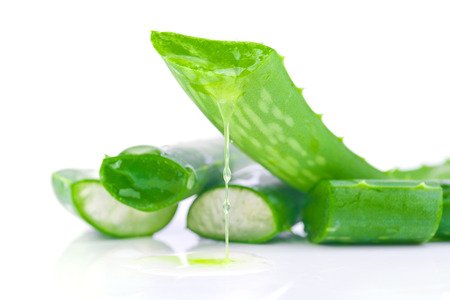Dermalogica Ultra Calming Skincare Solution
By Lisa Young – Salon Director

The Ultra Calming range from Dermalogica, provides the ultimate skincare solution for sensitive and sensitised skin.
How do we know ?
Because we use it in our treatment rooms not only with sensitive Clients but also post advanced skin treatments. This ensures that our client’s skin has the best after care and with minimal down time.
But first a little bit about sensitive skin and what triggers it.
Find out your sensitive skin type
Here’s how to tell if your skin is sensitive or sensitised and how to cope with it.
Do you experience the often painful and hard to manage symptoms of sensitive skin?
It looks and feels different for everyone:
- Redness.
- Dehydration.
- Itching and burning.
It can flare up occasionally for some people and for others they have to deal with redness and discomfort daily.
Did you know that sensitive skin can either be hereditary or linked to lifestyle triggers such as:
- Stress.
- Diet.
- Cosmetic ingredients.
- Pollution.
Knowing what causes your skin to react will help you determine if it is sensitive or sensitised. This is key in keeping your skin strong and most of all, healthy.
Sensitive Skin
Sensitive skin is a weak protective function of the skin. It is often found in persons that are genetically predisposed.
When skin is sensitive the protective outer layer of the skin allows irritants, microbes and allergens to pass through. As a result, this in turn can cause adverse reactions like stinging, pain, redness and flushing. Sensitive skin can be passed down through generations. But not all is lost as there are ways to manage it.
Some signs of sensitive skin:
Thin skin texture and a translucent appearance.
A feeling of tightness, which can indicate dehydration and lead to skin reactions from products.
Redness or blotchiness. This signals over-reactive capillaries or a tendency toward rosacea.
Flaking, peeling or cracking on the cheeks and forehead. This indicates dehydrated skin and impaired barrier function.
Flushing and itching, or burning sensations, which can also be a sign of over-reactive capillaries.
Small, rash-like bumps or breakouts (not to be confused with acne breakouts).
Sensitised skin
Frequent irritability from lifestyle, irritants and external factors can be signs of sensitised skin.
Good news: avoiding your individual triggers can actually reduce or eliminate your symptoms. When triggers can’t be avoided (think pollution, environment and temperature sensitivity), symptoms of sensitised skin can be managed through skin care and lifestyle changes.
Your skin can be affected by any of the following factors:
Lifestyle – Our lifestyles have an impact on our skin more than we realise. Stress, diet, smoking, dehydration, alcohol, reactions to cosmetic ingredients, trauma from laser resurfacing or peels, and over-processing caused by excess exfoliation or non-pH-balanced products.
Environment – Pollution, airborne allergens, weather, and sudden changes in climates or microclimates – like transfer from cold, dry winds outdoors to dry heat indoors.
Physiology – Stress or hormonal fluctuations.
Disease – Skin problems such as rosacea, eczema & psoriasis.
No matter what triggers your sensitive skin, working to strengthen your skin’s lipid barrier will help reduce the severity and frequency of your skin sensitivity reactions.
What does lipid barrier or barrier function mean ?
Well, picture your skin cells as tiny bricks and the “cement” holding them together are lipids.
A healthy lipid barrier (or barrier function) helps keep skin hydrated and healthy by holding water in and keeping environmental pollutants and any other baddies out. When your skin is exposed to triggers that compromise the barrier, the result is redness, dryness, irritation and discomfort, otherwise known as sensitive skin.
What ingredients in skin care is good for dealing with sensitive & sensitised skin?
Almost half the world’s population describes their skin as sensitive. Many people still struggle to find products that effectively treat their sensitivity. There are a number of soothing ingredients that play a huge role in calming sensitive skin.
Did you know that combining certain natural botanical extracts can actually help reduce symptoms of sensitive or sensitised skin?
Finding the ingredients that work to calm your redness, itching and irritation will help you take control of sensitivity for good. Here are some ingredients to look for:
Aloe Vera Leaf Juice – Aloe vera instantly hydrates skin, helping to soothe irritation due to skin dehydration.
Salvia Officinalis (Sage) Extract – This natural extract boosts recovery of the skin’s protective lipid barrier, which means it helps your skin keep hydration in and keep irritants out. It also contains antioxidants to help fight free radical damage.
Squalane – a naturally-occurring oil is a fool proof way to lock in moisture and boost elasticity without aggravating sensitive skin. Its light, non-greasy texture makes it suitable for any skin condition.
Tetrahydrocurcuminoids from Turmeric – Turmeric is the new super ingredient and has had a lot of press recently. Did you know it can also stop skin-damaging enzymes in their tracks? Turmeric-derived Tetrahydrocurcuminoids help soothe delicate skin and combat free radicals, stopping environmental damage before it starts.
Pyrus Malus (Apple Fruit) Extract – Apple fruit extract hydrates, softens and defends skin against dryness. Apple extract is rich in Vitamin C which means it is perfect for rejuvenating tired skin.
Avena Sativa (Oat) Kernel Oil – Avena Sativa is a rich source of Avenanthramides (the active component of the Avena Sativa plant) and has natural anti-irritant properties. It also helps combat sensitivity by improving skin’s barrier function.
A few ingredients to avoid when you have sensitive skin!
Lanolin – People with sensitive or sensitised skin can have an adverse reaction. Play it safe and choose a more neutral moisturiser.
Alcohol (SD Alcohol) – Many skin care products contain alcohol, which can sap skin’s moisture levels – leading to irritation and itchy, red skin.
Artificial fragrances or Colours – These ingredients can worsen sensitive skin conditions.
Where can you find these ingredients?
Dermalogica has a full range of skincare products that you can rely on to soothe and calm sensitive skin. Here are just a few from the range:
CLEANSE
Ultra Calming Cleanser
A gentle cleansing gel for sensitive skin that calms and cools redness and heat associated with reactive, sensitised or over processed skin.
TREAT
NEW Dermalogica Barrier Defense Booster
A concentrated oil booster that contains squalene and soothing oat oil to soothe, nourish and reinforce skin barrier integrity. Pop on under moisturiser to help rebuild the barrier lipids between skin cells that keeps irritants out.
MOISTURISE
NEW Dermalogica Calm Water Gel
A weightless water like gel moisturiser that penetrates skin to lock in moisture. Apple fruit extract & Catus Pear soothes, calms & hydrates skin.
PROTECT
Dermalogica Super Sensitive Shield SPF 30
A Broad Spectrum sunscreen ideal for sensitised, reactive and recently resurfaced skin. Natural mineral sunscreens help shield against photo damage and UV exposure. The exclusive Ultra Calming Complex with Oat and botanical actives to help minimise discomfort, burning and itching. Optimal hydration and helps protect and reinforce barrier lipids. No artificial fragrances and colours
Want to know more about your skin sensitivity problems and how to resolve them?
Why not book with one of our Dermalogica Skincare Experts on 02392 380 692
Quote of the day
“If you don’t act on life, life will act on you.”
Robin Sharma
